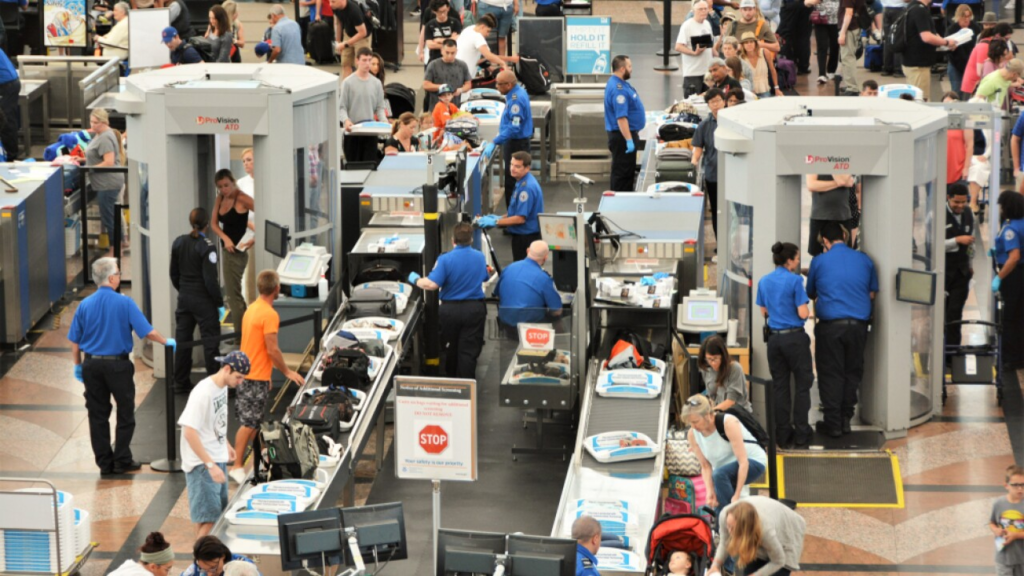Denver, CO — June 4, 2025 – The Colorado Department of Public Health and Environment (CDPHE) has confirmed that Denver International Airport (DIA) became a significant hotspot for measles exposure during the month of May 2025. Health officials are urging all travelers who passed through the airport between May 10 and May 19 to check their vaccination status, especially those who may be at high risk.
This health advisory follows the detection of multiple confirmed measles cases linked to passengers who were present in various airport terminals and gates during that time. The cases are believed to stem from an international traveler who was unknowingly contagious while transiting through Denver.
Colorado Department of Public Health: Official Update on Measles Cases
Travelers Urged to Take Immediate Health Precautions

Health officials are emphasizing the importance of reviewing vaccination history for individuals who may have been at Denver International Airport during the potential exposure period.
“Measles is extremely contagious and can linger in the air for up to two hours after an infected person has left,” stated Dr. Emily Harker, an infectious disease specialist with CDPHE. “Those who are unvaccinated or under-vaccinated are at highest risk of developing complications.”
Symptoms typically appear 7 to 14 days after exposure and include:
- High fever
- Cough
- Runny nose
- Red, watery eyes
- A distinct red rash that starts on the face and spreads
If you were at the airport during the dates in question and develop any symptoms, you are advised to contact your healthcare provider immediately. Avoid visiting clinics or emergency rooms without calling first to prevent further spread.
High-Risk Areas and Flight Information Under Review
CDPHE, in collaboration with airport authorities and the Centers for Disease Control and Prevention (CDC), is currently reviewing flight itineraries, gate assignments, and terminal traffic to pinpoint exact exposure zones. According to reports, the infected traveler passed through Terminal B, specifically gates B22 through B34, and also spent time in common waiting areas and restrooms near food courts.
The individual was not diagnosed until several days after traveling, increasing the risk that numerous passengers and airport workers were unknowingly exposed.
As of now, 12 confirmed measles cases have been linked to this exposure, and dozens more are under observation. Health officials believe more secondary cases may emerge in the coming weeks.
Measles: A Resurging Threat in the U.S.

The resurgence of measles in the U.S. has been a growing concern among health experts, largely due to declining vaccination rates in some communities. Measles was declared eliminated in the U.S. in 2000, but outbreaks still occur when unvaccinated individuals travel internationally or come into contact with infected travelers.
The MMR (measles, mumps, rubella) vaccine is considered highly effective, with two doses providing about 97% protection. However, those who are unvaccinated, immunocompromised, or too young to receive the vaccine remain vulnerable.
According to the CDC’s Immunization Coverage Report, vaccination coverage has dipped slightly in recent years, making outbreaks like this more likely.
Denver Airport Responds to Health Emergency
In response to the public health alert, Denver International Airport has ramped up sanitation efforts and is working closely with health officials to notify potentially exposed passengers. Cleaning protocols have been updated, especially in the identified zones, and signage is being placed throughout terminals to raise awareness about symptoms and safety measures.
“We are taking this situation very seriously,” said John Brost, Director of Safety at DIA. “Our primary goal is to ensure the health and safety of our travelers and staff. We’re cooperating fully with CDPHE and the CDC in their investigation.”
Airport staff who may have come into contact with the infected individual are also undergoing screening and evaluation. No delays or flight cancellations have been reported as of now.
What You Should Do Now
If you or someone you know passed through Denver International Airport between May 10–19, 2025, here’s what public health officials recommend:
- Check your MMR vaccination status. If you’re unsure, consult your healthcare provider.
- Watch for symptoms for up to 21 days after potential exposure.
- Avoid public spaces and gatherings if you begin to feel unwell.
- Contact your doctor immediately if symptoms develop, and mention the airport exposure.
Officials also urge the public not to panic but to remain alert and follow health advisories. With proper precautions, further spread can be prevented.
Final Thoughts: A Wake-Up Call for Travel Safety
This outbreak serves as a reminder that infectious diseases still pose a serious public health risk, especially in high-traffic travel hubs. Vaccination remains the most effective defense against measles and other preventable illnesses.
As international travel continues to rise post-pandemic, personal health responsibility is more critical than ever. Travelers are advised to stay up to date on vaccines, practice good hygiene, and remain informed through official health sources.
Also Read – Norse Atlantic Airways Begins Exciting New Route to California






